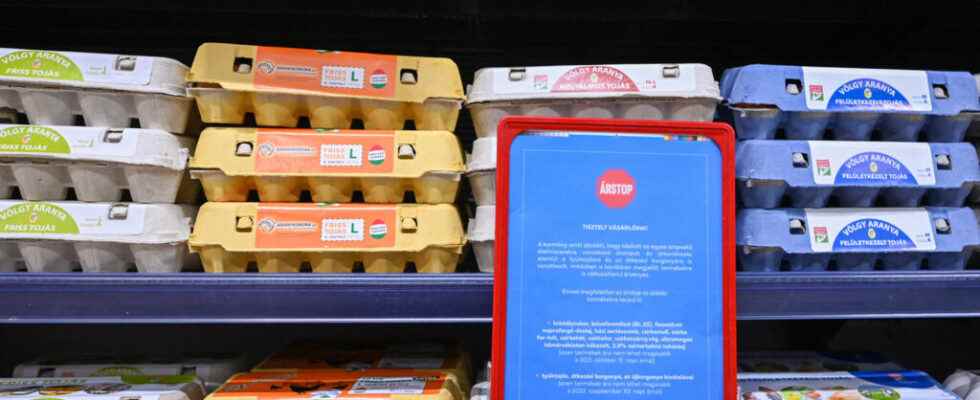Direction Hungary, European champion of inflation. The price increase was 23% in November, 25% expected for December. This is the highest rate in the whole of the European Union, where the price increase is on average 10%. Some Hungarians are forced to take a second or even a third job.
With our correspondent in Budapest,
On the markets of Budapest, it is crowded. Erzsébet is shopping, on the lookout for promotions, as food prices have risen 44% since last year. The price of eggs and bread has even doubled. ” Everything is much more expensive ! At least 40% more ! Meat, bread… Ah, bread is unaffordable ! Many people learn to bake bread at home. Eating healthy has become a luxury “, she testifies.
To fight against inflation, the Hungarian government has frozen the prices of certain foods: flour, semi-skimmed milk, certain cuts of pork and chicken… This price freeze has just been extended until next April. But Erzsébet doesn’t really see the difference in her wallet: People flock to these price capped products, she describes. Suddenly, the shelves are empty, and if you want milk, there is only the most expensive. This price freeze, I don’t see how it really helps us. »
► To read also: Hungary: soaring energy prices herald a particularly harsh winter
Why is inflation reaching 25% in Hungary, while in Europe it is only 10%?
It is because of the war in Ukraine, repeats the government of Viktor Orban. But for Dora Györffy, professor at Corvinus University in Budapest, it is also due to the government’s economic policy:
In January 2020, the inflation rate was already 4.7%, three times higher than the European average! All because since 2016, the government has constantly devalued the forint, to make the country more competitive. But imports have become more expensive, and that has fueled inflation.
For Dora Györffy, the populism of Viktor Orban also contributed to rising prices : “ The second cause of inflation is the huge budget deficit, she says. Before the elections, the government spent a lot of money: it refunded taxes to large families, and it paid a thirteenth month to pensioners. »
Retirees suffer the most from the consequences of inflation. This is the case of Katalin. With her pension of around 380 euros per month, she can no longer pay her bills. So she works part-time in four different places: “ I work in a pharmacy, I do housework for a family, and also in an office, and in a café… I get by like that. »
The government has announced that pensions will be increased by 15% from January. But this increase will be far from offsetting inflation.
► To read also: Germany: inflation should remain high in the coming years
